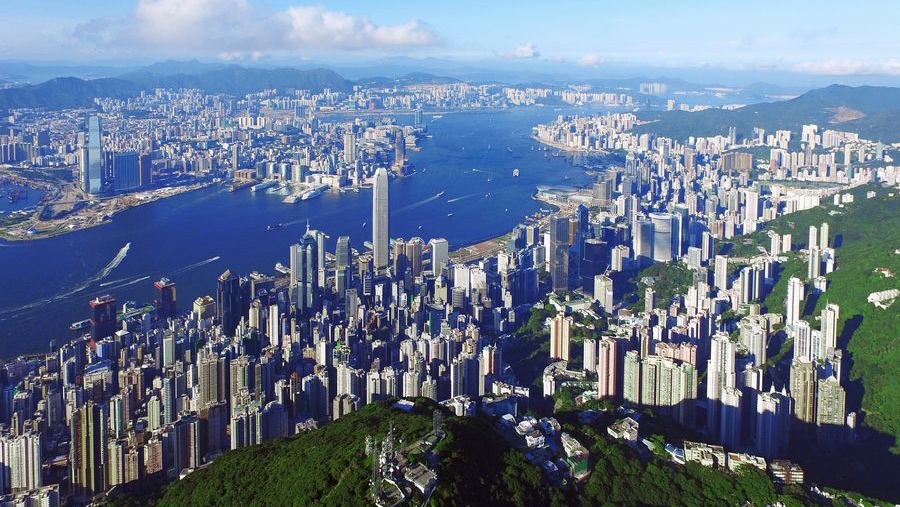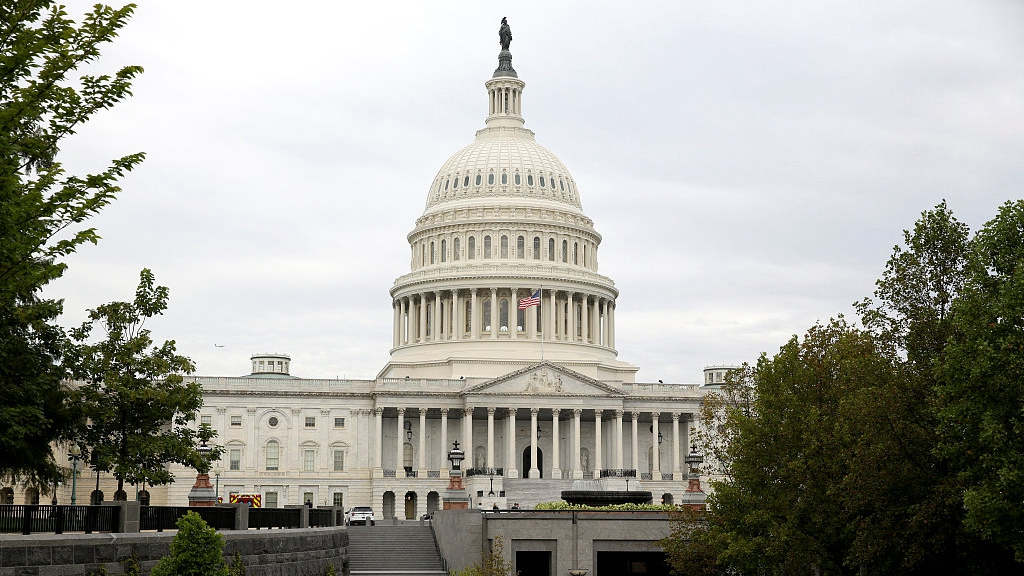
Editor's note: Iram Khan is a Pakistan-based commentator on international affairs. The article reflects the author's opinions, and not necessarily the views of CGTN.
During the 19th session of the Standing Committee of the 13th National People's Congress last week, China's top legislators made progress in improving legal frameworks to curb the attempts of foreign interference in the country's internal affairs.
The most important document presented for review was the draft law on safeguarding national security in the Hong Kong Special Administrative Region (HKSAR). With an emphasis on upholding the concept of "One Country, Two Systems", the draft law aims at plugging the shortcomings in Hong Kong's Basic Law that were holding back authorities from decisively acting against certain types of instigators.
The riots that engulfed the city for most part of last year have caused major setbacks to its economy. Its reputation as a financial hub is at stake, its trade has been severely affected and its tourism industry reached the brink of collapse even before COVID-19 emerged. The central government had to take measures to address the security issues while retaining Hong Kong's high degree of autonomy.
There are three main outcomes of the draft law put up for review during the session.
First, the law clearly defines the responsibilities of the central government and Hong Kong authority. The central government has the fundamental responsibility for national security affairs related to Hong Kong, and Hong Kong has the constitutional responsibility of safeguarding national security. For this purpose, Hong Kong authority have been empowered to prevent, stop and punish those who endanger the security situation.
Protection of human rights has been especially underlined in the document, so as not to cross the limits during the law enforcement process. The draft law affirms that every person has to be presumed innocent unless convicted.
The second major takeaway is the establishment of a national security commission by Hong Kong authority. It will be chaired by the Chief Executive and accountable to the central government.
And thirdly, a national security office will be established by the central government in Hong Kong to analyze the security situation and suggest strategies for its improvement. The office will also be supervising, guiding and coordinating with local officials during its work.

U.S. has interfered in China's internal affairs many times. The new national security law would patch up the loopholes. /VCG
U.S. has interfered in China's internal affairs many times. The new national security law would patch up the loopholes. /VCG
An analysis of the contours of the document reveals that the trust placed in Hong Kong authorities is quite high. Apart from exceptional circumstances, the central government does not have the intention of getting involved in local affairs. With these measures of strengthening the local government's legal jurisdiction, the discussion on the presumed erosion of Hong Kong's autonomy will be put to rest.
In addition to the Standing Committee, the Foreign Affairs Committee of the Chinese People's Political Consultative Conference also made some important statements. These were related to the Uygur Human Rights Policy Act of 2020 signed into law by U.S. President Donald Trump. Denouncing it strongly, the Committee asked the U.S. to discontinue such steps to avoid damaging the relations of the two countries.
The absurd move by the U.S. government comes on the back of its self-proclaimed role in upholding human rights around the globe. It is a fact that many disagree with the approach toward human rights that has resulted in extreme racial inequality in the U.S.
The ongoing Black Lives Matter protests are not against an aberration of recent times. Rather, they are against the deep-seated racism that started with the usurping of lands and rights of indigenous people of America and reached the depths of human indignity with the slave trade.
Now, the U.S. is blatantly violating international norms by passing the Xinjiang bill. What if another country takes on the same role upon itself? What if another country starts schooling the U.S. on the human rights abuses by its police? And what if another country starts taking the U.S. to task for its human rights record in Vietnam, Afghanistan and the Middle East?
There is a fine balance to be maintained when countering terrorism and protecting human rights. Suffering in the regions invaded by the U.S. is continuing, if not worsening, and enacting laws against China for protection of human rights is the height of irony.
Today, the Xinjiang Uygur Autonomous Region is far safer than it was during the 1990-2016 period. The two-pronged policy of counterterrorism and deradicalization has turned previously impoverished people into productive residents who are now contributing to the provincial and national economy.
Unfortunately, this is an election year in the U.S., and Trump's Republican party has made it a priority to target China rather than defend the indefensible rhetoric of their leader. Hence the barrage of anti-China demagoguery.
The top-level deliberations on countering interference in Hong Kong and Xinjiang are a sign that China is getting assertive against those fomenting trouble in these areas. With the legislation process on track, it is expected that the path for such subversive elements will be blocked, once and for all.
(If you want to contribute and have specific expertise, please contact us at opinions@cgtn.com.)